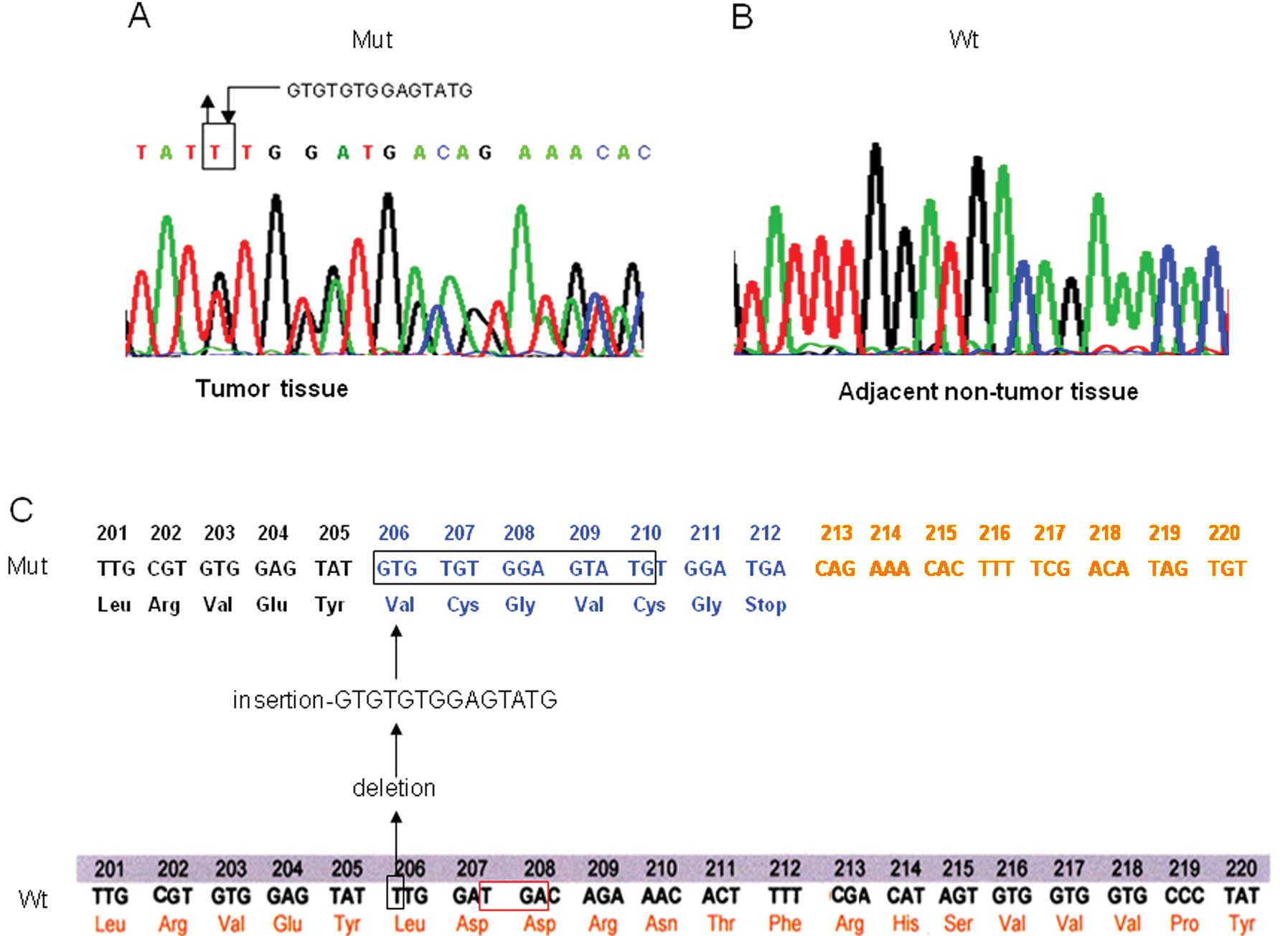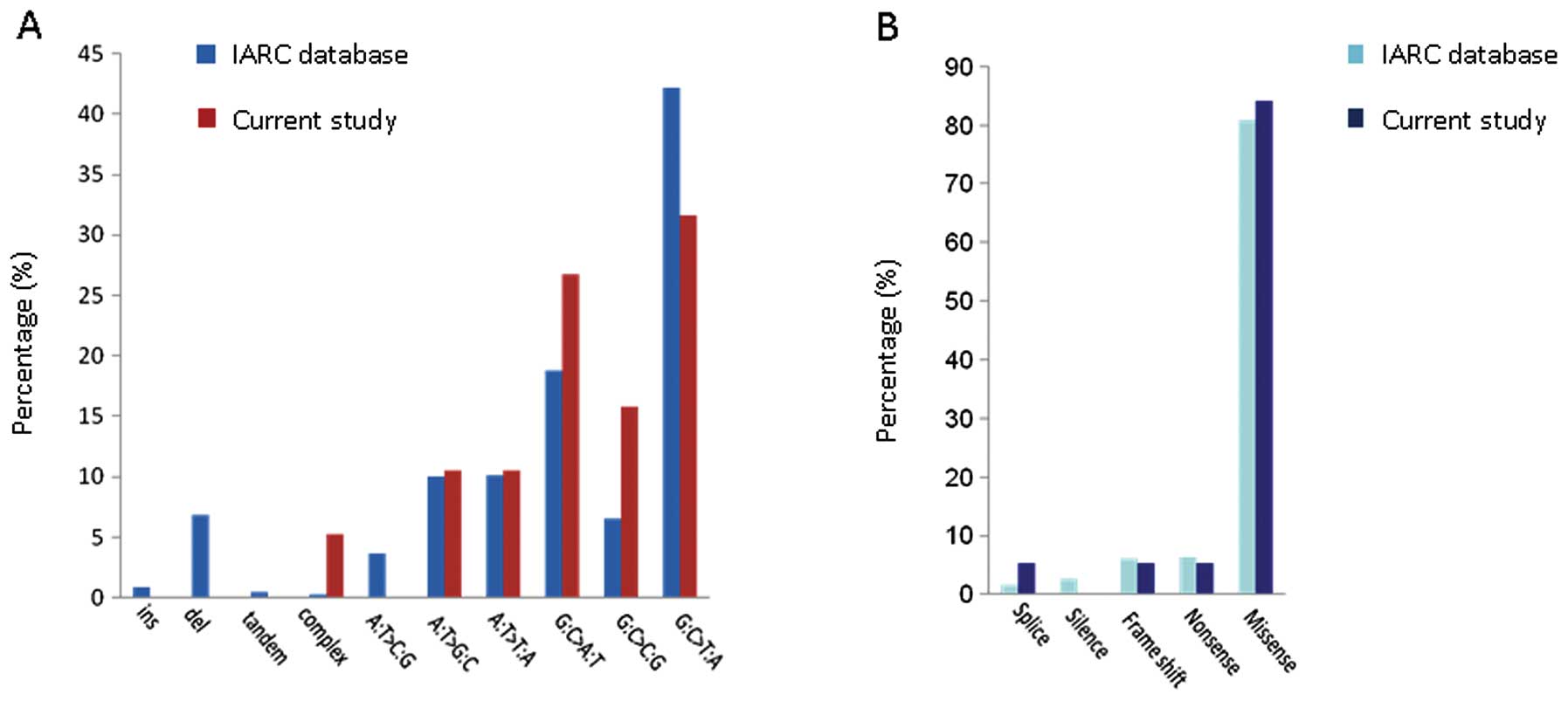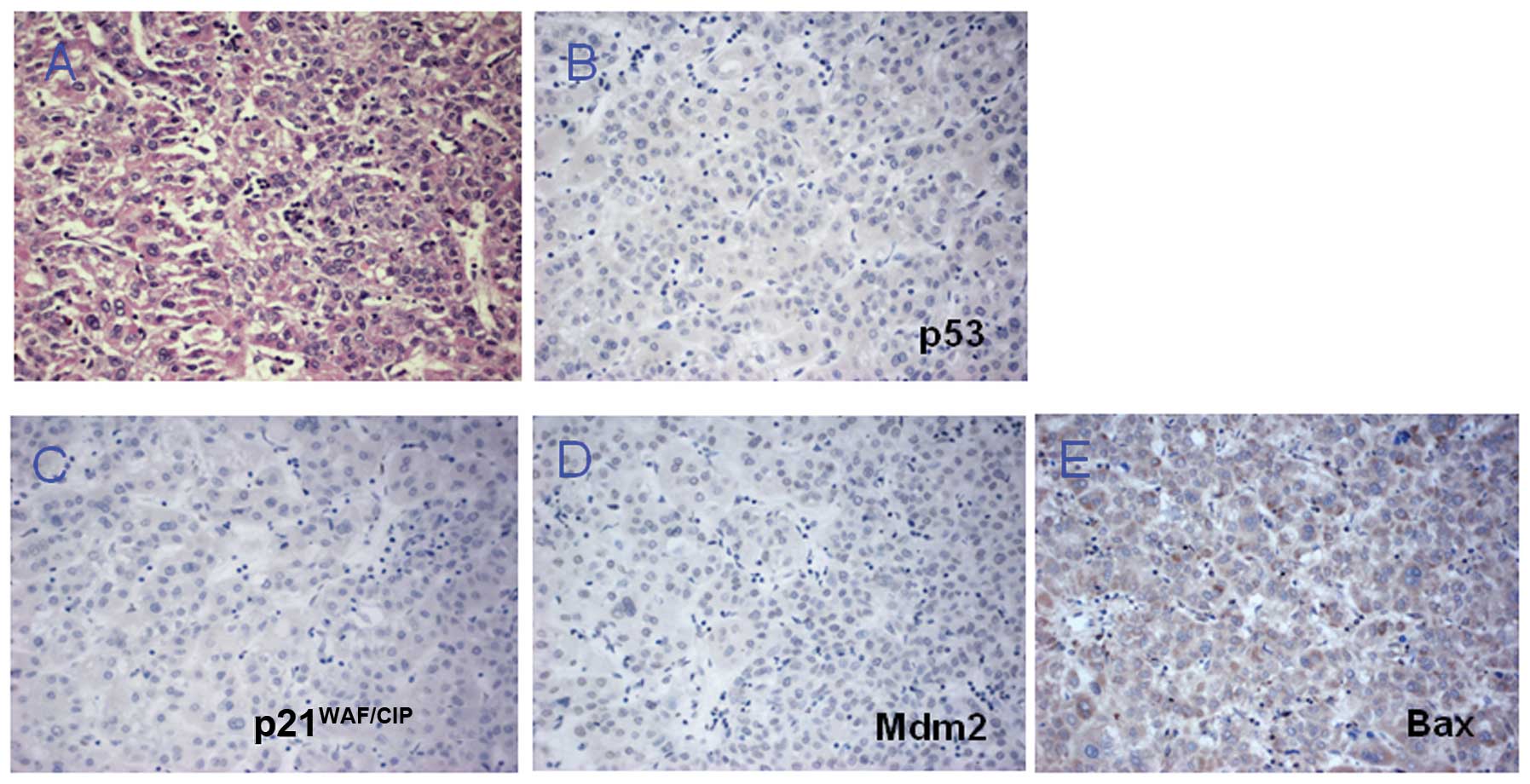|
1
|
Thorgeirsson SS and Grisham TW: Molecular
pathogenesis of human hepatocellular carcinoma. Nat Genet.
31:339–346. 2002. View Article : Google Scholar : PubMed/NCBI
|
|
2
|
Perz JF, Armstrong GL, Farrington LA,
Hutin YJ and Bell BP: The contributions of hepatitis B virus and
hepatitis C virus infections to cirrhosis and primary liver cancer
worldwide. J Hepatology. 45:529–538. 2006. View Article : Google Scholar : PubMed/NCBI
|
|
3
|
Raza SA, Clifford GM and Franceschi S:
Worldwide variation in the relative importance of hepatitis B and
hepatitis C viruses in hepatocellular carcinoma: a systematic
review. Br J Cancer. 96:1127–1134. 2007. View Article : Google Scholar : PubMed/NCBI
|
|
4
|
Liang TJ and Heller T: Pathogenesis of
hepatitis C-associated hepatocellular carcinoma. Gastroenterology.
127:S62–S71. 2004. View Article : Google Scholar : PubMed/NCBI
|
|
5
|
Mínguez B, Tovar V, Chiang D, Villanueva A
and Llovet J: Pathogenesis of hepatocellular carcinoma and
molecular therapies. Curr Opin Gastroenterol. 25:186–194.
2009.PubMed/NCBI
|
|
6
|
Ozturk M: p53 mutation in hepatocellular
carcinoma after aflatoxin exposure. Lancet. 338:1356–1359. 1991.
View Article : Google Scholar : PubMed/NCBI
|
|
7
|
Hussain SP, Schwank J, Staib F, Wang XW
and Harris CC: TP53 mutations and hepatocellular carcinoma:
insights into the etiology and pathogenesis of liver cancer.
Oncogene. 26:2166–2176. 2007. View Article : Google Scholar : PubMed/NCBI
|
|
8
|
Chen GG, Merchant JL, Lai PBS, et al:
Mutation of p53 in recurrent hepatocellular carcinoma and its
association with the expression of ZBP-89. Am J Pathol.
162:1823–1829. 2003. View Article : Google Scholar : PubMed/NCBI
|
|
9
|
Gonzalez KD, Hill KA, Li K, et al: Somatic
microindels: analysis in mouse soma and comparison with the human
germline. Hum Mutat. 28:69–80. 2007. View Article : Google Scholar : PubMed/NCBI
|
|
10
|
Hill KA, Gonzalez KD, Scaringe WA, Wang JC
and Sommer SS: Preferential occurrence of 1–2 microindels. Hum
Mutat. 27:55–61. 2006.
|
|
11
|
Huang J, Grotzer MA, Watanabe T, Watanabe
T, Hewer E, Pietsch T, Rutkowski S and Ohgaki H: Mutations in the
Nijmegen breakage syndrome gene in medulloblastomas. Clin Cancer
Res. 14:4053–4058. 2008. View Article : Google Scholar : PubMed/NCBI
|
|
12
|
Malkin D, Li FP, Strong LC, et al: Germ
line p53 mutations in a familial syndrome of breast cancer,
sarcomas, and other neoplasms. Science. 250:1233–1238. 1990.
View Article : Google Scholar : PubMed/NCBI
|
|
13
|
Petitjean A, Mathe E, Kato S, Ishioka C,
Tavtigian SV, Hainaut P and Olivier M: Impact of mutant p53
functional properties on TP53 mutation patterns and tumor
phenotype: lessons from recent developments in the IARC TP53
database. Hum Mutat. 28:622–629. 2007. View Article : Google Scholar : PubMed/NCBI
|
|
14
|
Bressac B, Katherine M, Galvin T, Liang J,
Isselbacher KJ, Wands JR and Ozturk M: Abnormal structure and
expression of p53 gene in human hepatocellular carcinoma. Proc Natl
Acad Sci USA. 87:1973–1977. 1990. View Article : Google Scholar : PubMed/NCBI
|
|
15
|
Boyault S, Rickman DS, Reynies AD, et al:
Transcriptome classification of HCC is related to gene alterations
and to new therapeutic targets. Hepatology. 45:42–52. 2007.
View Article : Google Scholar : PubMed/NCBI
|
|
16
|
Wardelmann E, Merkelbach-Bruse S, Pauls K,
et al: Polyclonal evolution of multiple secondary KIT mutations in
gastrointestinal stromal tumors under treatment with imatinib
mesylate. Clin Cancer Res. 12:1743–1749. 2006. View Article : Google Scholar
|
|
17
|
Scaringe WA, Li K, Gu DQ, Gonzalez KD,
Chen ZB, Hill KA and Sommer SS: Somatic microindels in human
cancer: the insertions are highly error-prone and derive from
nearby but not adjacent sense and antisense templates. Hum Mol
Genet. 17:2910–2918. 2008. View Article : Google Scholar : PubMed/NCBI
|
|
18
|
Noensie EN and Dietz HC: A strategy for
disease gene identification through nonsense mediated mRNA decay
inhibition. Nat Biotechnol. 19:434–439. 2001. View Article : Google Scholar : PubMed/NCBI
|
|
19
|
Bouchard MJ and Navas-Martin S: Hepatitis
B and C virus hepatocarcinogenesis: lessons learned and future
challenge. Cancer Lett. 305:123–143. 2011. View Article : Google Scholar : PubMed/NCBI
|
|
20
|
Bassiouny AE, Nosseir MM, Zoheiry MK, et
al: Differential expression of cell cycle regulators in
HCV-infection and related hepatocellular carcinoma. World J
Hepatol. 2:32–41. 2010.PubMed/NCBI
|
|
21
|
Okada T, Iizuka N, Yamada-Okabe H, et al:
Gene expression profile linked to p53 status in hepatitis C
virus-related hepatocellular carcinoma. FEBS Lett. 555:583–590.
2003. View Article : Google Scholar : PubMed/NCBI
|
|
22
|
Machida K, Cheng KT, Sung VM, et al:
Hepatitis C virus induces a mutator phenotype: enhanced mutations
of immunoglobulin and proto-oncogenes. Proc Natl Acad Sci USA.
101:4262–4267. 2004. View Article : Google Scholar : PubMed/NCBI
|
|
23
|
Anzola M and Burgos JJ: Hepatocellular
carcinoma: molecular interactions between hepatitis C virus and p53
in hepatocarcinogenesis. Expert Rev Mol Med. 5:1–16. 2003.
View Article : Google Scholar : PubMed/NCBI
|
|
24
|
Chang MH, Chen CJ, Lai MS, et al:
Universal hepatitis B vaccination in Taiwan and the incidence of
hepatocellular carcinoma in children. Taiwan Childhood Hepatoma
Study Group. N Engl J Med. 336:1855–1859. 1997. View Article : Google Scholar : PubMed/NCBI
|
|
25
|
Guichard C, Amaddeo G, Imbeaud S, et al:
Integrated analysis of somatic mutations and focal copy-number
changes identifies key genes and pathways in hepatocellular
carcinoma. Nat Genet. 44:694–698. 2012. View Article : Google Scholar : PubMed/NCBI
|
|
26
|
Jiang S, Yang Z, Li W, et al:
Re-evaluation of the carcinogenic significance of hepatitis B virus
integration in hepatocarcinogenesis. Plos One. 7:e403632012.
View Article : Google Scholar : PubMed/NCBI
|

















